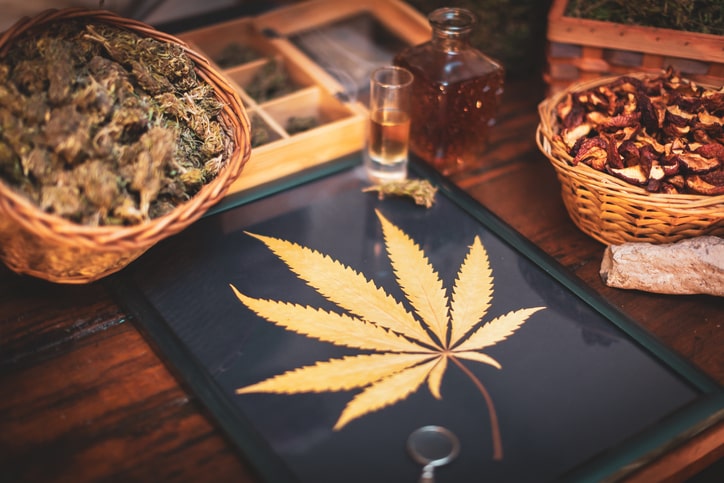We are approximately a third of the way through the 2024 California legislative session, which convened on January 3, 2024. Legislators across the state have introduced some key bills which could affect cannabis operators across the state.
Below, we outline several of the cannabis bills proposed this session, which includes legislation that would allow licensed consumption lounges to serve food, incorporate hemp into the existing cannabis regulatory scheme, and create industry standards and compliance requirements to promote product reliability and safety.
Creating Amsterdam-Style Cannabis Cafes – AB 1775
Assemblymember Matt Haney reintroduced a bill to permit cannabis cafes in California. Assembly Bill (“AB”) 1775 “empowers cities to choose to allow Amsterdam-style Cannabis Cafes where Californians can enjoy food, coffee, and entertainment while consuming cannabis.”
Specifically, the bill would permit cities to allow licensed consumption lounges to sell prepackaged and/or prepared non-cannabis food and drink products, and sell tickets for on-site performances.
Last year, Assemblymember Haney introduced this proposal via AB 374, which passed both houses of the legislature with broad bipartisan support. Nonetheless, Governor Newsom vetoed the bill, citing concerns that the proposal “could undermine California’s long-standing smoke-free workplace protections.”
Assemblymember Haney reintroduced AB 1775 to address the Governor’s concerns regarding smoke-free workplaces. According to the Assemblymember, amendments addressing this issue will “be worked out in the coming months” and that his office is in “conversation with [Governor Newsom’s] departments about what exactly that will include.”
Incorporating Hemp into the California Cannabis System – AB 2223
Assemblymember Aguiar-Curry introduced AB 2223, which seeks to address the prevalence of unlicensed, intoxicating hemp-derived products, meanwhile increasing the viability of cannabis licensees in California’s cannabis industry.
Specifically, the legislation would permit cannabis licensees to manufacture, process, distribute, and sell products containing industrial hemp (or cannabinoids, extracts, or derivatives from industrial hemp), given that the licensee complies with all applicable regulations.
The bill would prohibit the manufacture, sale, and distribution of delta-9 tetrahydrocannabinol, which has been converted from a hemp-derived cannabinoid. The bill would also prohibit the manufacture, distribution, or sale of industrial hemp products that contain a synthetically derived cannabinoid unless authorized by the Department of Cannabis Control (“DCC”).
The bill would require the DCC to oversee registration of out-of-state hemp manufacturers who produce industrial hemp products for import into California, and would require the DCC to create a licensing structure to permit licensees who are also registered hemp manufacturers to use the same premises for its activities.
Simplifying the State Licensing Process by Consolidating License Types – SB 1604
Senator John Laird introduced Senate Bill (“SB”) 1064, which seeks to restructure the cannabis licensing scheme so that licensees are not required to have individual premises for each type of licensed activity.
As written in the bill, Senator Laird aims to “revise the procedures for issuance of state licenses for certain commercial cannabis activities to promote efficiency, avoid overlap with local land use processes while protecting local control, and reduce barriers to entry into the legal, regulated market, in furtherance of the purposes and intent of MCRSA, AUMA, and MAUCRSA.”
The bill would make various conforming changes, including the revision of the list of license types, as currently codified. Specifically, the bill would consolidate the licensing of commercial cannabis activities (excluding cultivation and laboratory testing) under one license type, which would be called an “operator license”. An operator license would be required to obtain additional premises licenses for the type of activity conducted on the premises.
Cultivation and laboratory testing types would be classified under the “unified license” type, and other commercial cannabis activity types would be categorized under the “premises license” type.
Developing Industry Standards to Promote Product Safety – AB 1610
Assemblymember Jones-Sawyer introduced AB 1610, which aims to create “greater transparency and trust in the [cannabis] marketplace” and “protect consumers and maintain high quality cannabis products.”
A press release from Assemblymember’s office cites concerns for product recalls due to “unsafe levels of mold, yeast, E.coli, and salmonella” and “a growing trend of tetrahydrocannabinol (THC) inflation, where brand and labels overstate the level of THC in products to charge higher prices.”
If passed, the legislation would, among other things, create quality assurance standards and testing procedures for retail products, establish standard laboratory blind proficiency test procedures, require all testing laboratories to be subject to those standards, subject testing laboratories to biennial, in-person audits by the DCC, and require the DCC to maintain a record of all recall orders and audit results on its website.
Key Legislative Deadlines To Keep In Mind
- February 16, 2024 was the last day that new bills could be introduced. Thus, no new legislation may be proposed, although changes may be made to bills that were introduced prior to this date.
- May 24, 2024 is the last day for each house to pass bills introduced in that house.
- August 31, 2024 is the last day for each house to pass any bills before the legislative session adjourns.
- September 30, 2024 is the last day for Governor Newsom to sign or veto bills passed by the Legislature.
Manzuri Law California Cannabis Attorneys
Manzuri Law’s team of California cannabis attorneys is keeping a close eye on the trajectory of legislative proposals that could affect cannabis operators across the California supply chain.
If you have questions about the potential impact of proposed cannabis legislation in California, contact our cannabis law firm specialists at Manzuri Law today by phone at (310)-912-2960 or online today.

